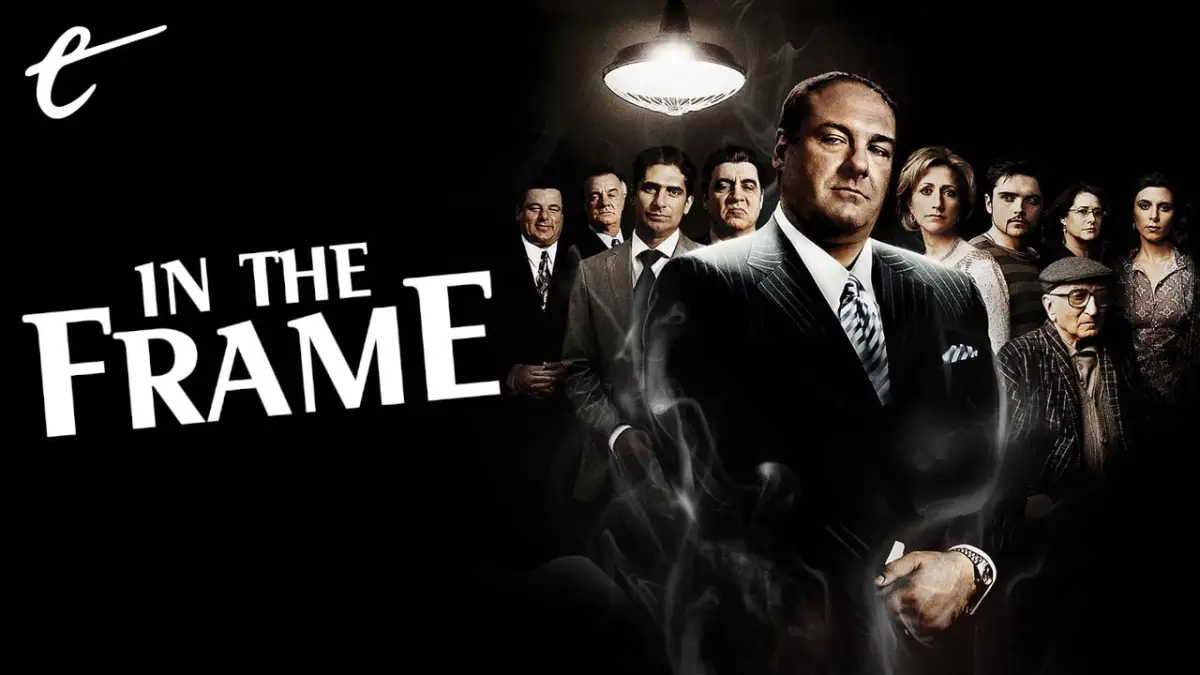With the pending release of The Many Saints of Newark, it seems as good a time as any to take a look back to The Sopranos.
The Sopranos is quite rightly regarded as a show that “changed TV forever.” It was “paradigmatic of the moment when television became art and became more complex.” It was one of the cornerstones of the so-called “golden age of television.” There are any number of reasons for this: its approach to topics like sex and violence, its emphasis on antiheroic characters, the skill with which it was produced, the way that it captured the distinctive millennial malaise of its moment.
However, rewatching the show two decades removed from its original broadcast, The Sopranos stands out as a television show that implicitly trusted its audience without condescending to them. More so than most of its contemporaries, The Sopranos was a show that thrived on a moral and psychological ambiguity that asked its audience to really consider its subjects. Why do these people do what they do? Do these people themselves even know why they do what they do?
This is perhaps why The Sopranos endures, enjoying a new wave of popularity among audiences too young to have watched it when it premiered. The show ended in June 2007, but the discussion continues. This is most obvious in how fans (and critics) continue to vigorously debate what the show’s memorable closing scene was actually saying. Entire blogs are dedicated to decoding and deciphering The Sopranos, as if cracking the DaVinci Code.
Of course, the ambiguity is the point. Part of the thrill of The Sopranos is its refusal to bluntly explain itself to its audience, and that approach extends well beyond the controversial closing shot. Like a lot of groundbreaking media, The Sopranos actively teaches its audience how to watch it. This is most obvious in the central hook of the series, the idea of a New Jersey mob boss named Tony Soprano (James Gandolfini) walking into the office of psychiatrist Jennifer Melfi (Lorraine Bracco).

In the early seasons, the psychiatry sessions between Tony and Melfi serve as a sounding board for the audience. They allow Tony to articulate his inner thought processes more candidly than most television characters and invite Melfi to process them through with him. It would be reductive to suggest that these therapy sessions “explain” the show, but they serve a similar purpose in explaining the level at which the show operates. This might explain why some modern audiences struggle with them.
As the show developed, Melfi came to feel superfluous. Melfi would drop Tony as a patient for extended periods, and the show would struggle to come up with plots that directly involved her, like “Employee of the Month.” In later seasons, even when Tony was still in therapy, Melfi would disappear for long stretches. These later seasons would lean heavier on absurd and abstract imagery, like Tony’s nightmare in “The Test Dream” or his alternate coma life in “Join the Club.”
Melfi had served her purpose in teaching the importance of interpretation. In the final season, Tony attends a session after watching Cleaver, a horror film produced by his nephew and subordinate Christopher (Michael Imperioli). Cleaver stars Daniel Baldwin as a monstrous mob boss who bears an uncanny resemblance to Tony, who ends up hacked to death by the film’s protagonist. Tony initially misses the subtext, but his wife Carmela (Edie Falco) points it out to him.
Melfi seems to understand exactly where Tony’s mind is heading, in what it might mean that Tony finally understands how Christopher sees him and the anger that his nephew feels for him. “Is it possible that on some level you’re reading into all this?” Melfi asks. The scene closes with Tony explaining that he has learned basic media literacy. “I’ve been coming here for years,” he tells Melfi. “I know too much about the subconscious now.”

It’s a small but revealing exchange. It also gets at the complexity of The Sopranos as a show. While the stakes are understandably lower for general audiences than they are for Tony and Christopher, the principle is the same. The Sopranos is a show that constantly asks its audience to consider the difference between its characters’ conscious and unconscious behavior, and even to determine when characters are lying — whether to themselves or to others.
After all, it quickly becomes clear that the psychiatrist’s office is not a sacred space. While Tony and Melfi’s conversations initially seem like straightforward explanations of the rest of the show, Tony constantly lies to Melfi about events the audience has witnessed. In “The Strong, Silent Type,” Tony is dumped by a one-night stand named Svetlana (Alla Kliouka). However, in the next episode, he insists to Melfi that he “broke (Svetlana’s) heart” when he “told her (he) couldn’t see her no more.”
Motivations in The Sopranos are frequently displaced. In “Watching Too Much Television,” Tony takes his son A.J. (Robert Iler) on a tour of his property holdings. The pair are harassed by the local residents, and Tony is humiliated in front of his son. Later, Tony leans on his connections to evict the residents. Tony insists that he’s motivated by simple greed, planning to strip the copper pipes and marble mantles. Although never articulated, it seems as likely that he’s reacting to wounded pride.
It’s frequently debatable to what extent the characters even understand what they are doing. In “The Happy Wanderer,” Tony repeatedly urges his old friend Davey (Robert Patrick) not to get in over his head in debt, even as he extends Davey credit. However, when Davey ignores Tony’s advice and gets in too deep, Tony is forced to ruin Davey’s life. In the same episode, Tony expresses to Melfi his pent up anger towards people who take their happiness for granted — like Davey did.

Perhaps the best illustration of these central ambiguities remains the ninth episode of the fourth season, “Whoever Did This.” The episode is frequently (and deservedly) listed among the best that the show ever produced. It’s an episode built around Tony’s murder of Ralphie Cifaretto (Joe Pantoliano). Ralphie is arguably as pure a monster as The Sopranos ever produced, terrorizing New Jersey for the better part of two seasons until Tony took care of him.
Tony and Ralphie had a tense relationship. In “University,” one of the show’s most controversial and violent episodes, Ralphie murdered a young stripper and sex worker named Tracee (Ariel Kiley). The show had consciously paralleled Tracee with Tony’s own daughter Meadow (Jamie-Lynn Sigler). Tony responded to Tracee’s death by beating Ralphie to a pulp, only stopping because Ralphie was a made man. Later, Tony and Ralphie would take joint ownership of a horse, named Pie Oh My.
The events of “Whoever Did This” are spurred by a horrific accident. Ralphie’s son Justin (Dane Curley) is critically injured with an arrow. This sends Ralphie into a spiraling depression. He vows to Tony that he is “a different man.” He reconciles with his ex-girlfriend Ro (Sharon Angela) and sets up a college scholarship in the name of her dead son. He visits and prays with Father Phil Intintola (Paul Schulze). He even asks Ro to marry him and seems to express remorse over his life choices.
As this is happening, the stables housing Pie Oh My burn down. The horse is horrifically injured and has to be put down. Tony comes to suspect that Ralphie burned down the stable to claim on the insurance. Ralphie denies it, but Tony is not convinced. The two struggle. Tony kills Ralphie. Tony then calls his nephew Christopher to help him dispose of Ralphie’s body, claiming that he “found (Ralphie) like this.”

The central tension of “Whoever Did This” lies in four questions that the show never explicitly answers. It barely even articulates some of them. The first question concerns whether Ralphie has really been changed by the horrific accident involving his son, or if this is just a temporary epiphany and Ralphie would have eventually slipped back into the monster he’d always been. After all, characters on The Sopranos rarely changed. Those who did rarely changed for long.
The second question is whether Ralphie actually burned down the stables. There’s certainly a lot of evidence to support this. Even if Justin’s hospital bills were covered by his stepfather’s insurance, Ralphie just set up a $25,000-a-year scholarship. While he denies the crime to Tony, Ralphie admits relief that the horse is dead and shows little remorse. Showrunner David Chase has suggested in interviews that Ralphie did burn down the stable, but the show leaves the charge unanswered.
The third question concerns Tony’s motivation. Was Tony solely motivated by the death of Pie Oh My, or was this a delayed reaction to Ralphie’s murder of Tracee? As he kills Ralphie, he screams, “She was a beautiful, innocent creature. What’d she ever do to you? You fucking killed her.” Is he talking about Pie Oh My or Tracee? To underscore the point, the episode’s closing scene finds Tony at the Badda-Bing strip club considering a picture of Tracee before stumbling into the harsh daylight.
The fourth and final question concerns Christopher. Does Christopher actually believe Tony’s claim that he just stumbled across Ralphie’s bloody body? The setup should seem unusual to Christopher, but Christopher has never been an especially sharp observer of human nature. As he prepares to dismember Ralphie’s body, he is stunned to discover the man wore a wig. Christopher is drugged up and zoned out during the adventure, so it’s plausible he doesn’t figure out that Tony killed Ralphie.

The episode never explicitly answers these questions. It allows the audience to draw their own conclusions. How the audience answers these four questions will affect their reaction to the episode and their opinion of the characters. Was Ralphie on the path to redemption? Did he deserve to die? Is Tony a sociopath who cares more about animals than people, or simply someone whose lifestyle has forced him to repress his empathy? Is Christopher afraid Tony will murder him one day?
It’s a microcosm of what makes The Sopranos such an enduring piece of American pop art. These are far from the only lingering ambiguities within the show, as anybody who has contemplated the fate of the Russian in “Pine Barrens” will attest. They aren’t even the only ambiguities within this episode, as a key subplot concerns Tony’s uncle Junior (Dominic Chianese) trying to escape conviction by faking dementia. Given his later descent into dementia, is Junior really faking, or are these early symptoms?
These questions can’t be definitively answered, but they can be debated long after a cut to black. The Many Saints of Newark will undoubtedly add a lot of fodder to those fans convinced that “Tony is dead,” but the truth is that The Sopranos lives on.





